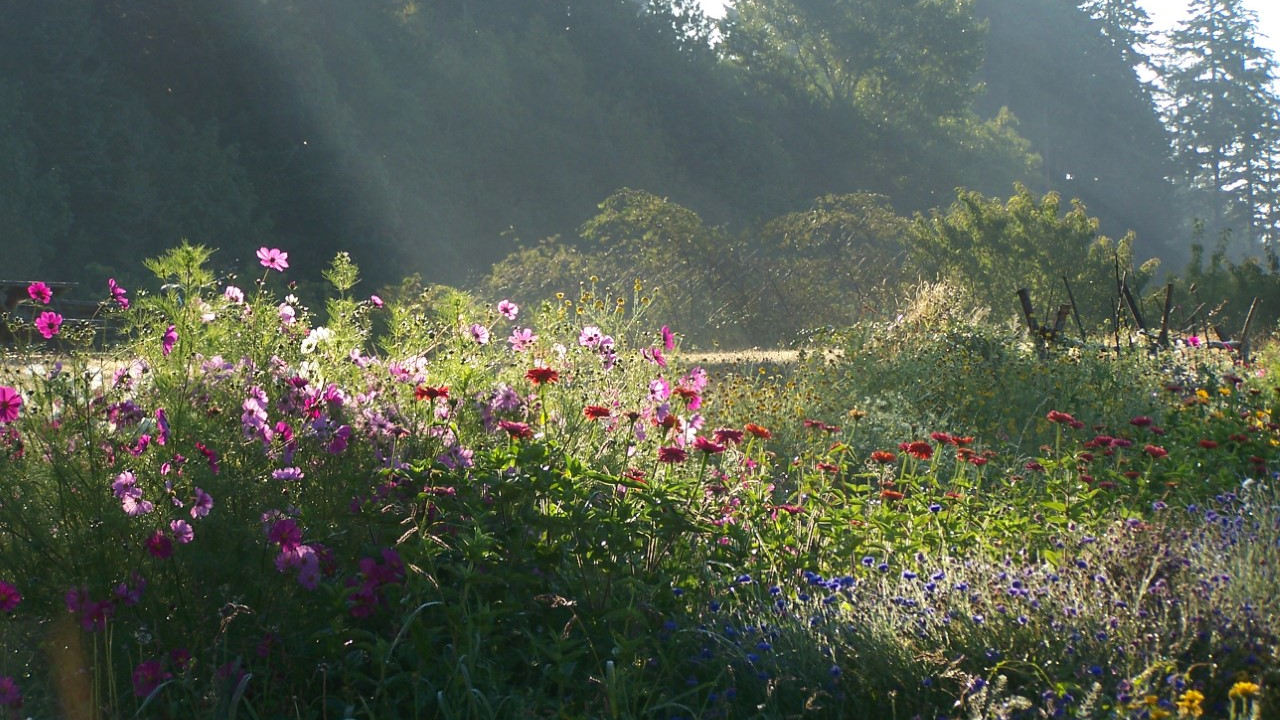
Students leading sustainable development during SDG Week Canada and beyond
Events happening at Waterloo campus and across Canada

Events happening at Waterloo campus and across Canada
By Andrea Bale and Jacqueline Ouellette Sustainability Office and SDSN CanadaSDG Week Canada is a country-wide collaboration from March 6 to 10, with more than 50 campuses across the country hosting events. The initiative encourages cross-disciplinary engagement with the UN’s Sustainable Development Goals (SDGs).
SDSN Canada at the University of Waterloo has worked alongside Colleges and Institutes Canada (CICan) and the Sustainability Hub at the University of British Columbia to co-lead this inaugural initiative.
In this leadership role, SDSN Canada brought its perspective as a part of the United Nations’ Sustainable Development Solutions Network (SDSN) by applying the Global Goals Week model to the opportunities envisioned for Canadian communities and campus culture.
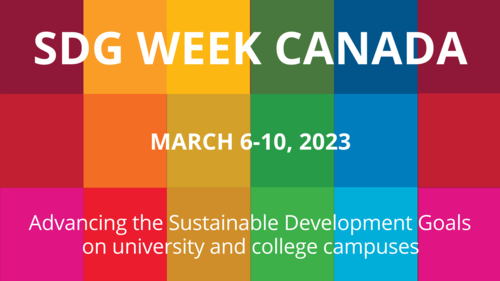
With more than 70 events and counting, students, staff and faculty from campuses across Canada set out to advance the 17 SDGs by exploring current operations, research, teaching and learning opportunities.
“We’re halfway to the deadline to complete the SDGs mandate and much work remains to be done,” says Dr. Bruce Frayne, chair of SDSN Canada and dean of the Faculty of Environment. “SDG Week Canada is our opportunity to rise to the occasion and push for change throughout the country.”
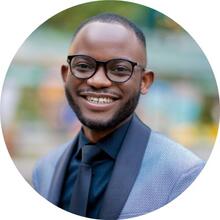 As an organizing partner in this campaign, SDSN Canada is hosting Brighton Kaoma, global director of the UN’s SDSN Youth. Kaoma is visiting Waterloo for SDG Week Canada. Among the numerous engagements planned for this visit, he will speak with the UWaterloo student community at an open event hosted by the Waterloo Undergraduate Student Association (WUSA), the Impact Alliance and SDSN Canada on March 8 at 4 p.m. in the EV 3 auditorium.
As an organizing partner in this campaign, SDSN Canada is hosting Brighton Kaoma, global director of the UN’s SDSN Youth. Kaoma is visiting Waterloo for SDG Week Canada. Among the numerous engagements planned for this visit, he will speak with the UWaterloo student community at an open event hosted by the Waterloo Undergraduate Student Association (WUSA), the Impact Alliance and SDSN Canada on March 8 at 4 p.m. in the EV 3 auditorium.
In addition to Brighton’s visit, there are several exciting events happening throughout the week for interested students:
Visit the full calendar of events to learn more about other events and activities happening throughout the week.
Experiential education and entrepreneurship are at the heart of Waterloo’s learning ecosystem. Beyond SDG Week, there are several opportunities that can help students to create meaningful impact within our campus borders and beyond.
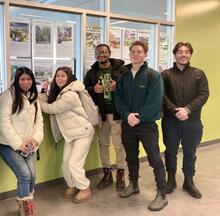 From the classroom to the campus
From the classroom to the campusThe Sustainability Living Lab program supports students and faculty in using the campus as a “living lab,” connecting academic pursuits with real-world data to research, test and apply innovative solutions to sustainability challenges.
Some current and recent Living Lab projects include:
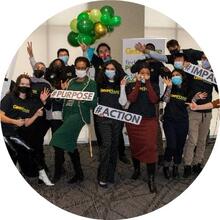 GreenHouse, a social impact incubator, helps students create social and environmental change from ideation to implementation. Their Social Innovators in Training (SIIT) program leads students through a 10-week series to foster entrepreneurial skills and connect students to professional networks. Then, their Social Impact Fund brings ideas to life. Since its inception, the fund has awarded more than $225,000 across more than 100 student ventures. Some recent success stories include:
GreenHouse, a social impact incubator, helps students create social and environmental change from ideation to implementation. Their Social Innovators in Training (SIIT) program leads students through a 10-week series to foster entrepreneurial skills and connect students to professional networks. Then, their Social Impact Fund brings ideas to life. Since its inception, the fund has awarded more than $225,000 across more than 100 student ventures. Some recent success stories include:
If you want to make an impact but aren’t sure where to start, GreenHouse supports students through their Changemaker Labs and Community Innovation Challenge programs.
Finally, there are many student groups and organizations leading grassroots efforts and contributing to tangible impact on the SDGs. The WUSA Sustainability Directory is a central hub for student clubs tackling on environmental and social justice issues.
To learn more about Waterloo’s contributions to the SDGs, read our Sustainable Development Goals Report: Making a Contribution to a Better World or reach out to sustainability@uwaterloo.ca.

Read more
Inclusion of disabled people needs to be a priority during SDG Week

Read more
Canada Research Chair Kelsey Leonard puts Indigenous knowledge at the forefront of environmental justice
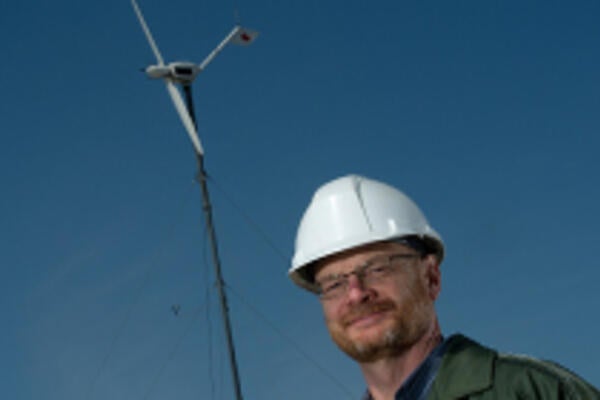
Read more
Waterloo researcher hopes wind turbines will save money and the environment for First Nations that depend on diesel
The University of Waterloo acknowledges that much of our work takes place on the traditional territory of the Neutral, Anishinaabeg, and Haudenosaunee peoples. Our main campus is situated on the Haldimand Tract, the land granted to the Six Nations that includes six miles on each side of the Grand River. Our active work toward reconciliation takes place across our campuses through research, learning, teaching, and community building, and is co-ordinated within the Office of Indigenous Relations.